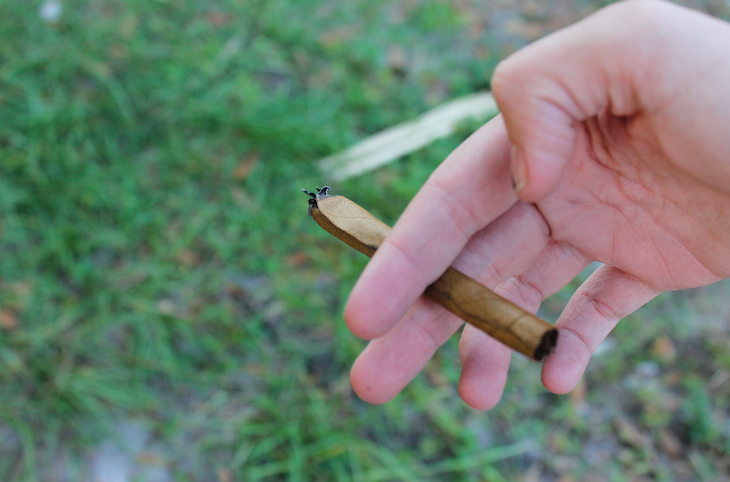Tampa’s City Council Moves Forward with Marijuana Decriminalization Ordinance
Editor’s Note: This is not marijuana, it is a cigarette bought legally by an adult staffer and used for modeling purposes only.
February 19, 2016
In a Feb. 18 meeting, Tampa’s City Council voted 6-0 to set a vote March 3 on an ordinance which would decriminalize small amounts of marijuana in Tampa.
The ordinance would make having 20 grams or less of marijuana commensurate to a speeding ticket rather than an arrest, allowing those caught to avoid getting a criminal record.
The council opened up public comment on the measure, with supporters of decriminalizing marijuana outnumbering the deterrents.
Renee Petro, a member of CannaMoms, a national organization devoted to advocating for use of marijuana, spoke to the board about her own personal experiences having a child with a seizure disorder. None of the 19 FDA approved drugs the family tried has worked.
“Every day he asks me, ‘Mom, I want to get better,’ and I know that cannabis will help him,” Petro said.
Some supporters kept it brief, with one reminding the council that the “lord gave us” the “herbs of the earth” and therefore they should be legal.
Another mentioned how she’d moved from Ann Arbor to Florida in 1984, and at that time, Ann Arbor already had a decriminalization program, calling Tampa slow and behind the times for its lack of decriminalization laws.
Opposition to the proposal came from the Hillsborough County Anti Drug Alliance, who deemed the 20 grams too much and advocated instead for pre-arrest diversion and treatment for substance abuse for first-time offenders, similar to a program implemented in Leon County, Fla.
If passed, the ordinance would set fines of $75 for the first offense, $150 for the second offense, $300 for a third offense and $450 for the fourth offense, although this would apply only when there was less than 20 grams of marijuana involved and when the offender was an adult.
Cities and counties in Florida with similar programs include Miami-Dade County, Miami Beach, Hallandale Beach, Key West, West Palm Beach, Broward County and Wilton Manor.
Although the state of Florida currently has no laws legalizing or decriminalizing any sort of medical marijuana, Amendment 2, which would legalize medical marijuana in the state, will appear on the ballot in 2016 after receiving 58% of the vote in 2014 and failing to receive the 60% required to pass.
To view Tampa’s City Council website, where transcripts of yesterday’s meeting will be posted as well as meeting live streams and agendas for future meetings and votes, click here.











